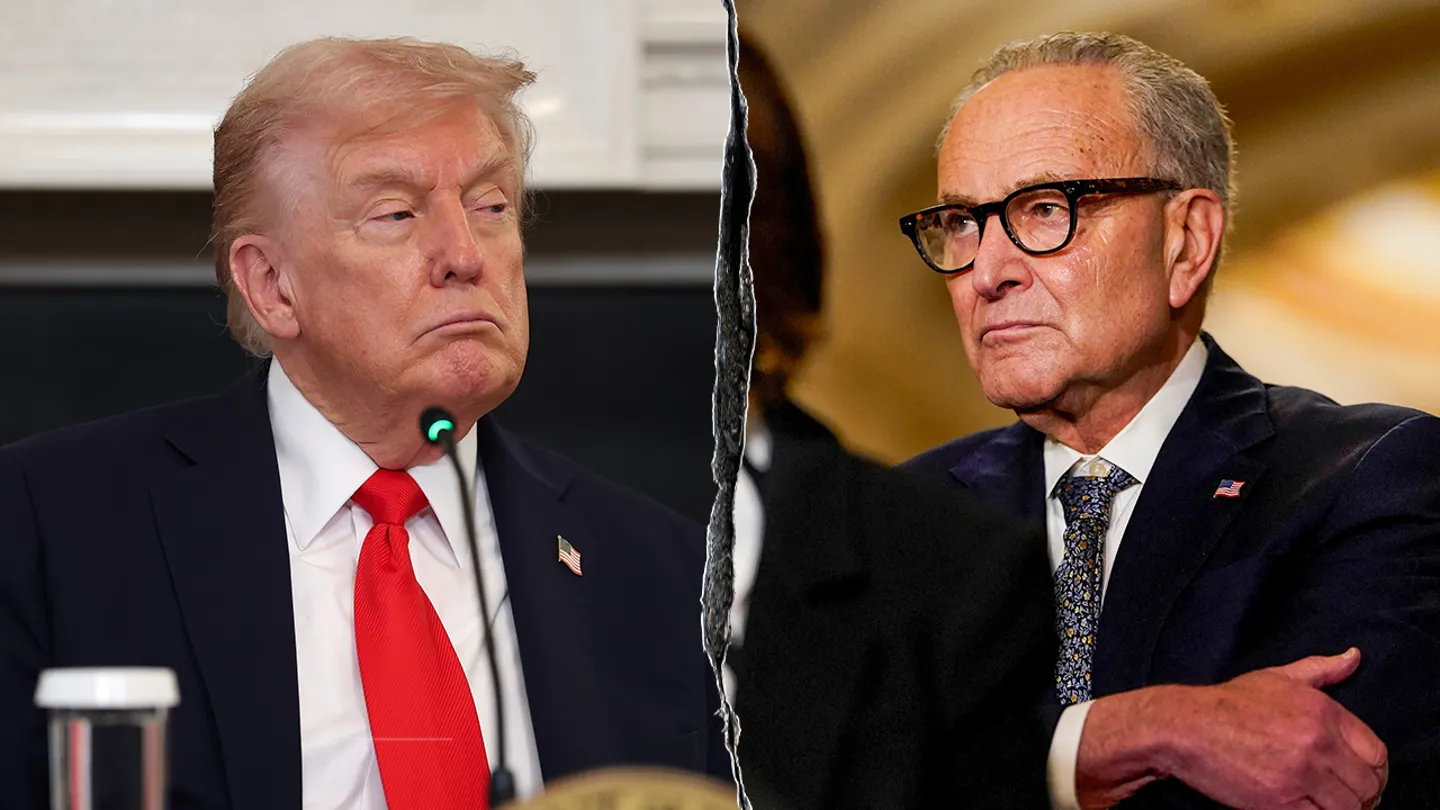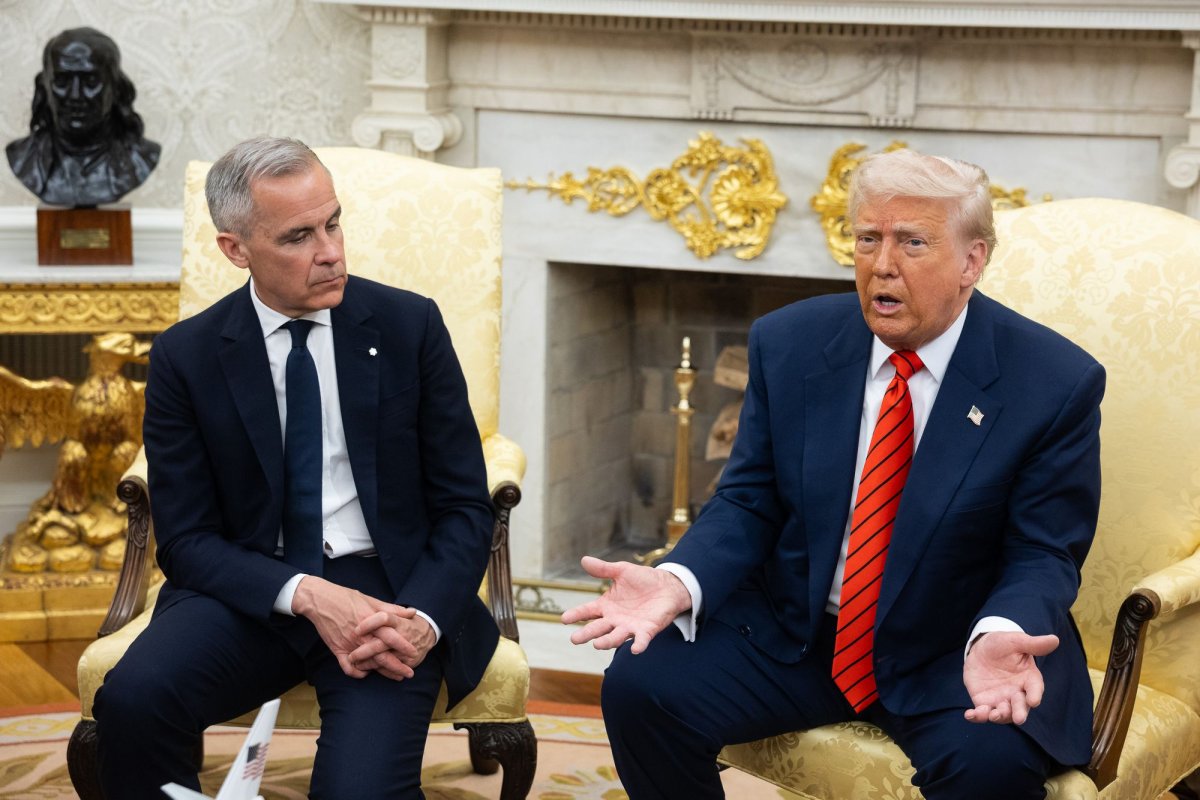Former US Army Major Harrison Mann has not had time to relax until now. Fresh from his holiday in Puerto Rico, he appeared in good spirits while talking about his decision to quit his role at the Defense Intelligence Agency (DIA) in protest over the US’s support for Israel.
“I have no regrets,” he told i on a Zoom call from Washington, dressed in a short sleeve dark shirt with a neon dinosaur print. “It cost $12,” he laughed.
His apparent calm was a far cry from the anguish he experienced a year ago. Having served nearly 13 years in the military, he resigned within a month of the outbreak of the war in Gaza.
Overwhelmed by reports and images of civilian deaths, he felt “incredible shame and guilt” for the part the US was playing in their suffering.
The decision to quit on 1 November was not made lightly, he said, and he worried about the potential consequences not only for himself, but also his family.
“We are all Jewish, including me,” he said. “Before I decided to publicise my story, I consulted with my family a lot, mainly because I was worried about blowback on them.
“I’ve never done something like this before and I was incredibly scared of the consequences.”
Major Mann is one of a dozen high-profile resignations within the Biden administration in the past year, reflecting a growing rift between senior and rank-and-file US officials opposed to the White House’s approach to the war.
While there have been reports of hundreds of government officials voicing dissent anonymously through joint statements, including with European counterparts, Major Mann and 11 others have defied established practice by openly criticising Israel, the US’s closest ally in the Middle East, and accusing the White House of turning a blind eye to Israeli atrocities against Palestinians.
There have been some resignations in Europe, but only one known case in the UK government. Mark Smith, a counterterrorism official based in the British embassy in Dublin, quit the Foreign Office in August having raised concerns “at every level” inside the department.
Last October, Major Mann described feeling “a lot of cognitive dissonance” viewing traumatic imagery coming out of Gaza, sometimes on the flatscreen TVs in the office at the DIA, where he worked as an executive officer specialising in the Middle East.
“We were treating this like business as usual,” Major Mann said. “It was really difficult, confusing and frustrating to be part of that, with nobody recognising that this support we’re providing is part of what’s causing this humanitarian disaster.
“It was not just that what we were doing was indefensible… in the first month after 7 October, I learned enough to be pretty confident that the US policy was not going to change, and that’s what really hurt.”
The first publicly known resignation was Josh Paul, who oversaw arms transfers for the US government for more than a decade. He quit his role in the US Department of State on 18 October, after he voiced concerns about US arms sales to Israel, saying there was no doubt in his mind that American bombs were killing thousands of people in Gaza.
Mr Paul has been one of the loudest voices among the group of resignees, sharing his unique insider knowledge on US arms transfers in interviews with the media, discussions at universities and speeches at demonstrations outside the White House and elsewhere. He now works for Dawn, a human rights organisation that promotes democracy in the Middle East and North Africa.
He has received hundreds of messages from people who support his decision, including his former colleagues. While there have been 12 known resignations in the US government, Mr Paul said he is aware of at least “two to three times that number” who have left quietly.
“I speak to colleagues who are in government every single day, in the state department, in defence and elsewhere,” he told i.
“Just in the last couple of days some have said ‘if we get dragged into a war with Iran, I’m resigning’. There is an increased level of concern.”
Major Mann said he is also aware of some of his former colleagues who have quit or wanted to but were afraid of the consequences, particularly younger staffers who are paying off their students debts while budgeting for the high cost of living in Washington.
Resignations are a slow process – Major Mann’s did not take effect until early June – and some are anxious about what it could mean for their future careers.
Major Mann said he had former colleagues crying to him on the phone, but he was “honestly surprised” that more did not follow in his steps.
“I felt so angry that I assumed that there was going to be a bunch of people [quitting] after me, or more at least,” he added.
“There is still a lot of self-silencing on this topic.”
The US government has had to strike a difficult balance between support of its key ally in the Middle East while condemning Israel’s bombing of civilians in Gaza. Matters have been made more complicated with the war spreading into Lebanon and Iran now entering the fray.
The war has been catastrophic for Palestinians in Gaza, with no end in sight for the unrelenting horror they have witnessed in the past year. More than 41,900 people have been killed since the war began, according to Palestinian health officials, but the death toll is believed to be much higher, with many bodies buried under the rubble.
US weapons, however, continue to move through the approval process unabated, said Mr Paul.
When asked whether he had any regrets about resigning, he responded: “Not for a second, and the record of the last year bears that out.
“There have been people who have stayed who have tried to make a difference from the inside and have not been able to affect or impact policy.
“It was very clear the direction was coming from the very senior levels that ‘we will expedite these arms transfers, we will say yes to everything Israel requests’, and that hasn’t changed.”
Major Mann was similarly confident that he made the right decision. For months he had kept quiet about his resignation, which he pointed out was not an irreversible process, in the hopes that the war would end or there would be a shift in US policy.




